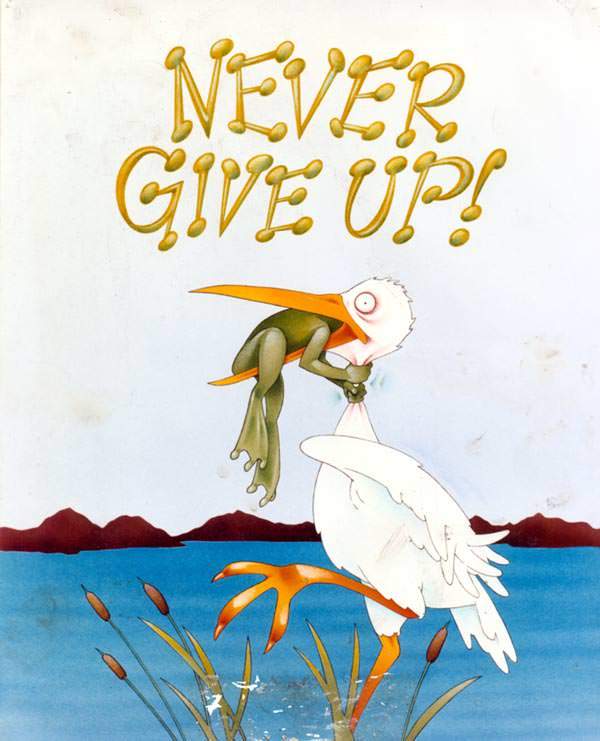Choosing to Quit: When Ministry Impedes Ministry
 I was raised to never give up. A drawing was fixed to my family's refrigerator door that I still remember. A heron is being choked by a mostly-swallowed frog that's gripping its predator’s neck in a desperate act of survival. The caption? Never give up.
I was raised to never give up. A drawing was fixed to my family's refrigerator door that I still remember. A heron is being choked by a mostly-swallowed frog that's gripping its predator’s neck in a desperate act of survival. The caption? Never give up.
We love inspiring images like this. Every story worth telling involves a degree of adversity and the best stories tell us how a hero overcomes extreme odds to achieve something extraordinary. Terry Fox. Captain Sully. The Hickory Hoosiers.
We feel inspired by these stories and the slogans that fuel them. An entire brand was launched on the premise of these axioms (No Fear). The most beloved team of my childhood was defined by a three-word rallying cry that still gives me goosebumps: refuse to lose.
Vince Lombardi once said that winners never quit and quitters never win. An inspiring quote fit for any locker room, but in most other settings it's a statement that's misleading and inaccurate. You see, the best winners know exactly when to quit.

To be fair, we must understand how to correctly define winning and losing. The best coaches and players understand the importance of "making adjustments". This is the positive way of saying they recognize what isn't working and choose to do something different. Stated differently, they choose to quit so they can win.
But what coach would actually say that? Quitting is associated with such negativity that it's typically equated to the willful acceptance of failure—a behaviour quickly linked to shame and embarrassment. Little consideration is given to the positive results of surrendering harmful practices or to the healthy consequences of giving something up after careful consideration.
In his book called Necessary Endings, Dr. Henry Cloud uses the word "ending" to describe the calculated decision to give up something up for the sake of a new direction. He uses a pruning metaphor to illustrate the positive effects of proactive termination. A skilled gardener intentionally removes branches that fall into any of three categories because this will produce the desired results:

